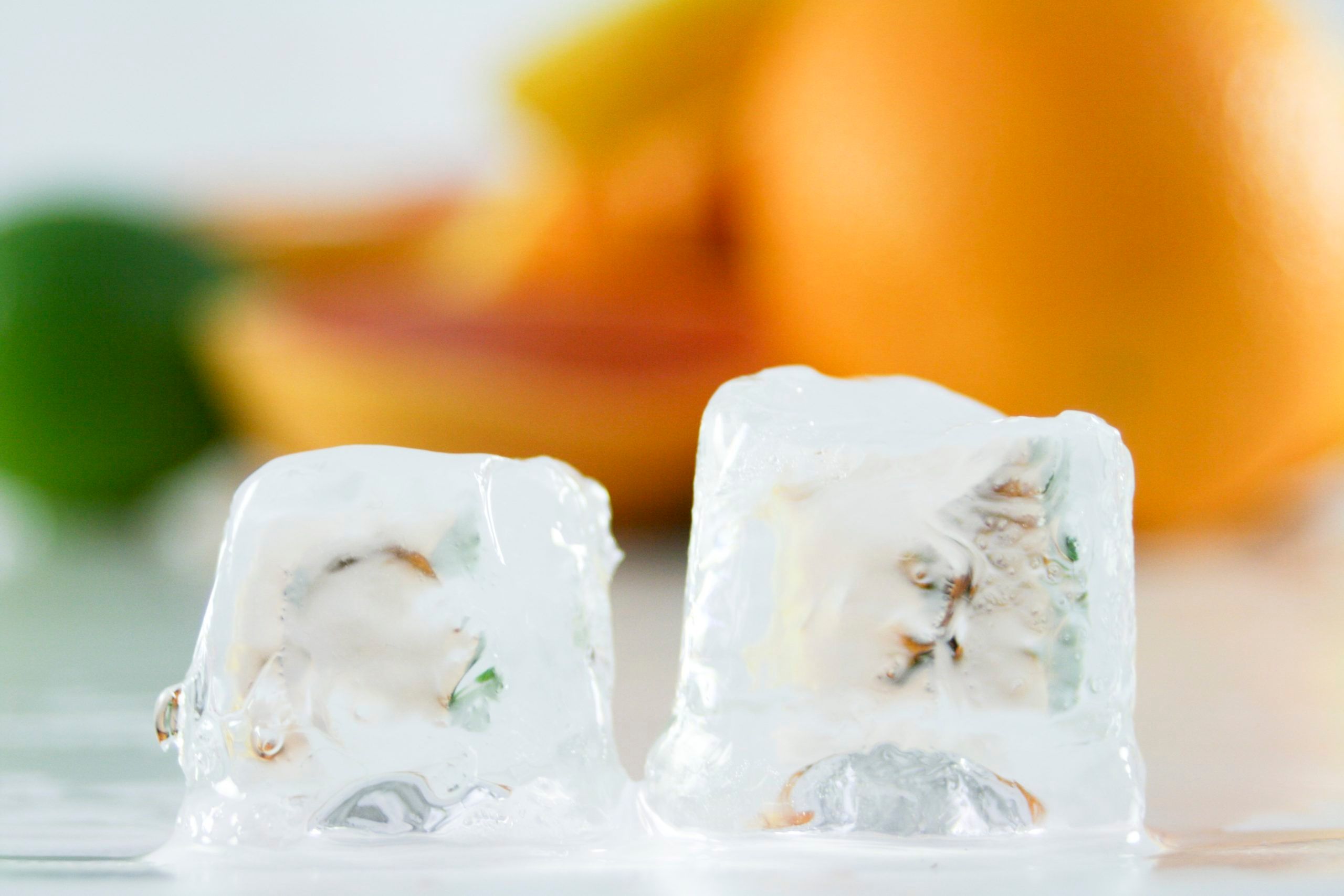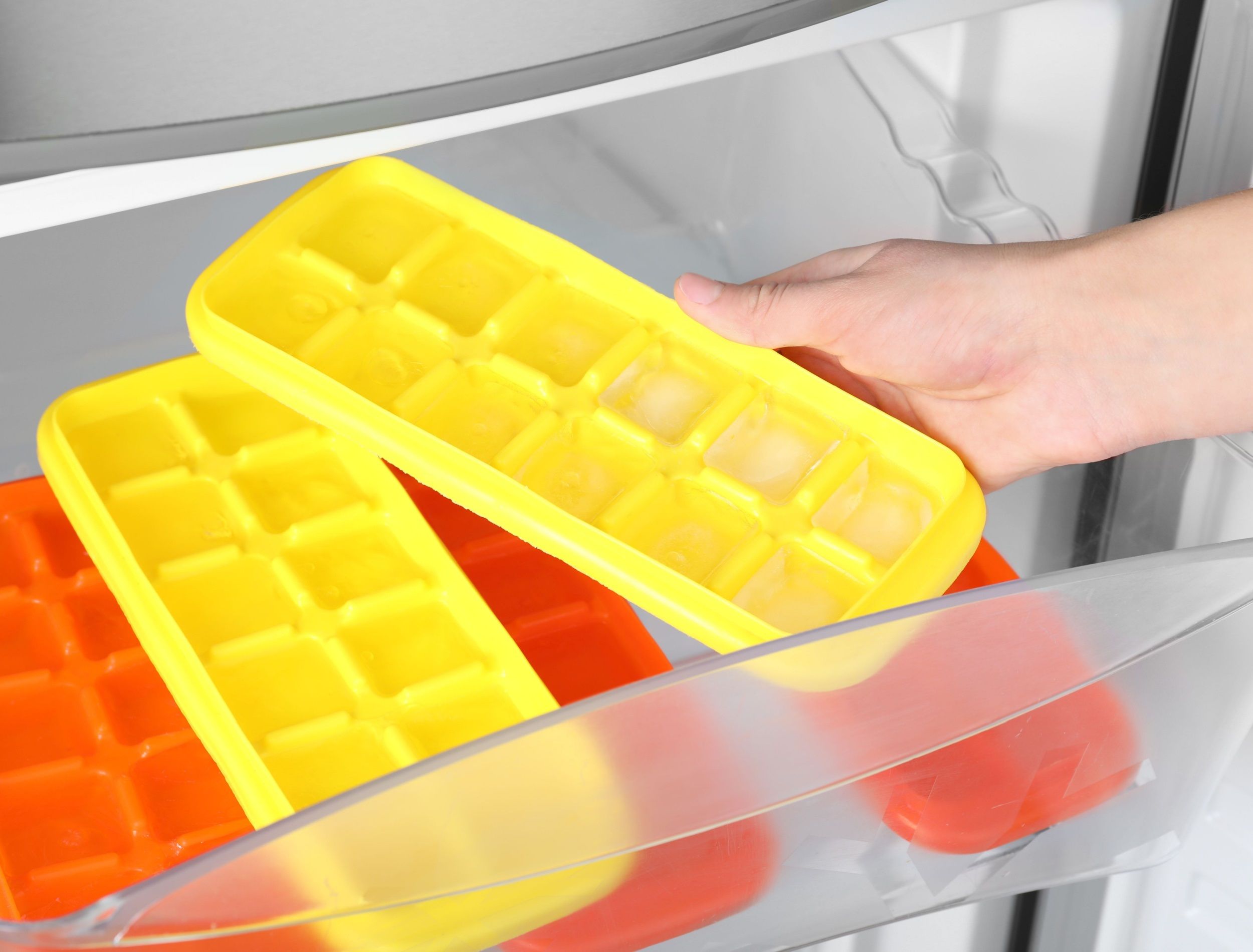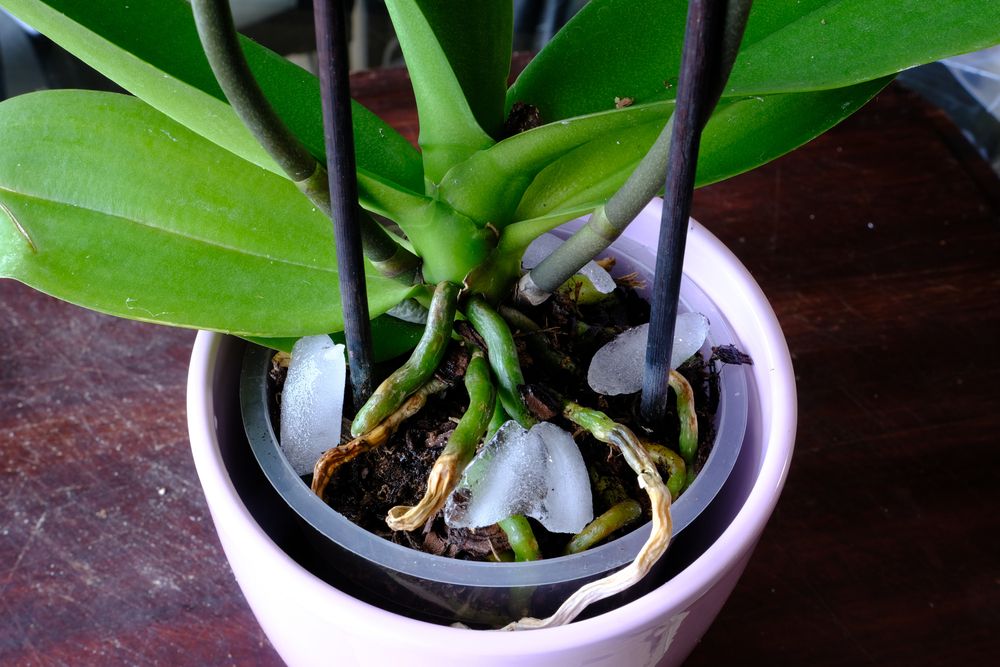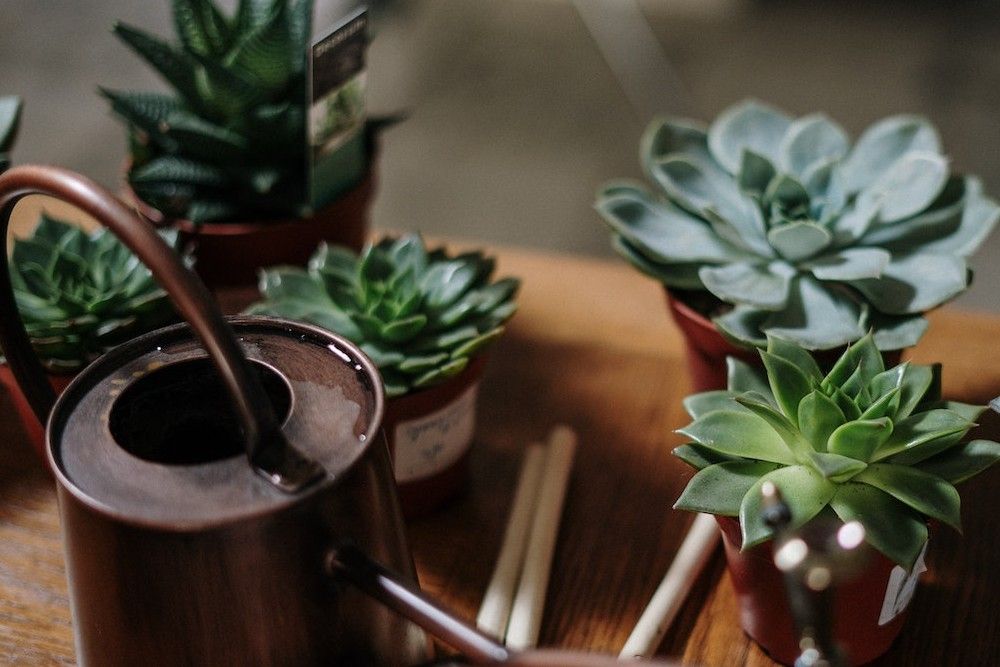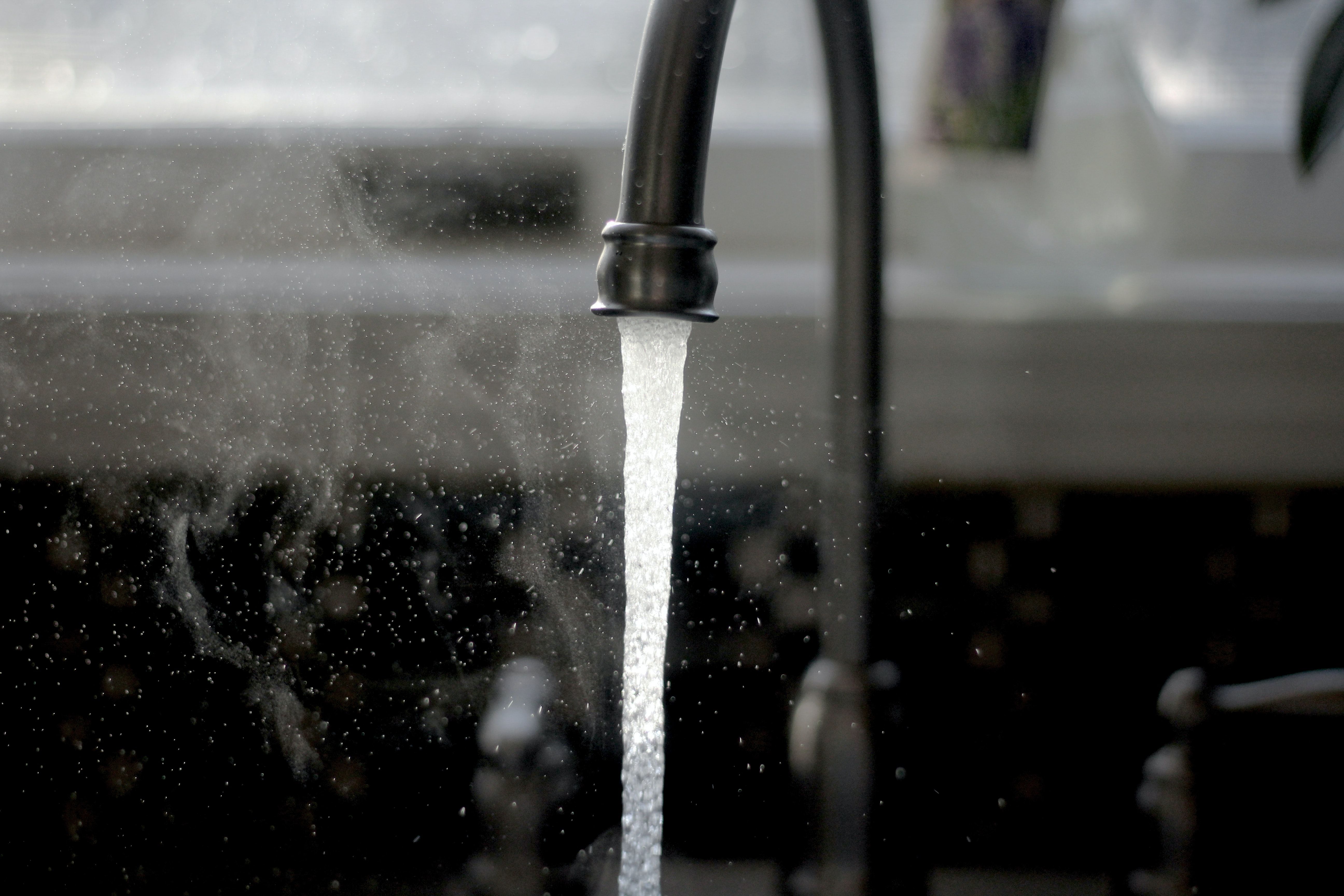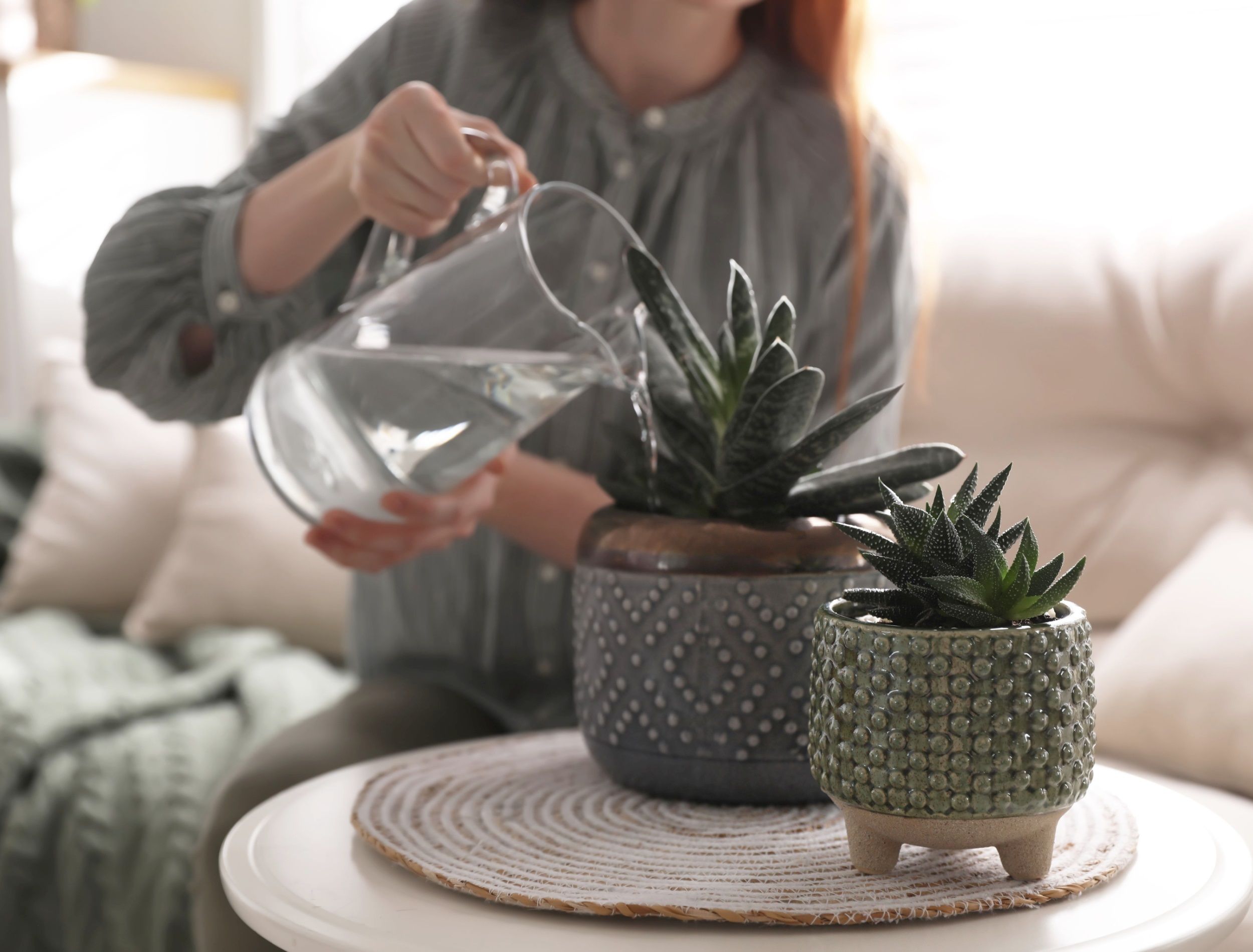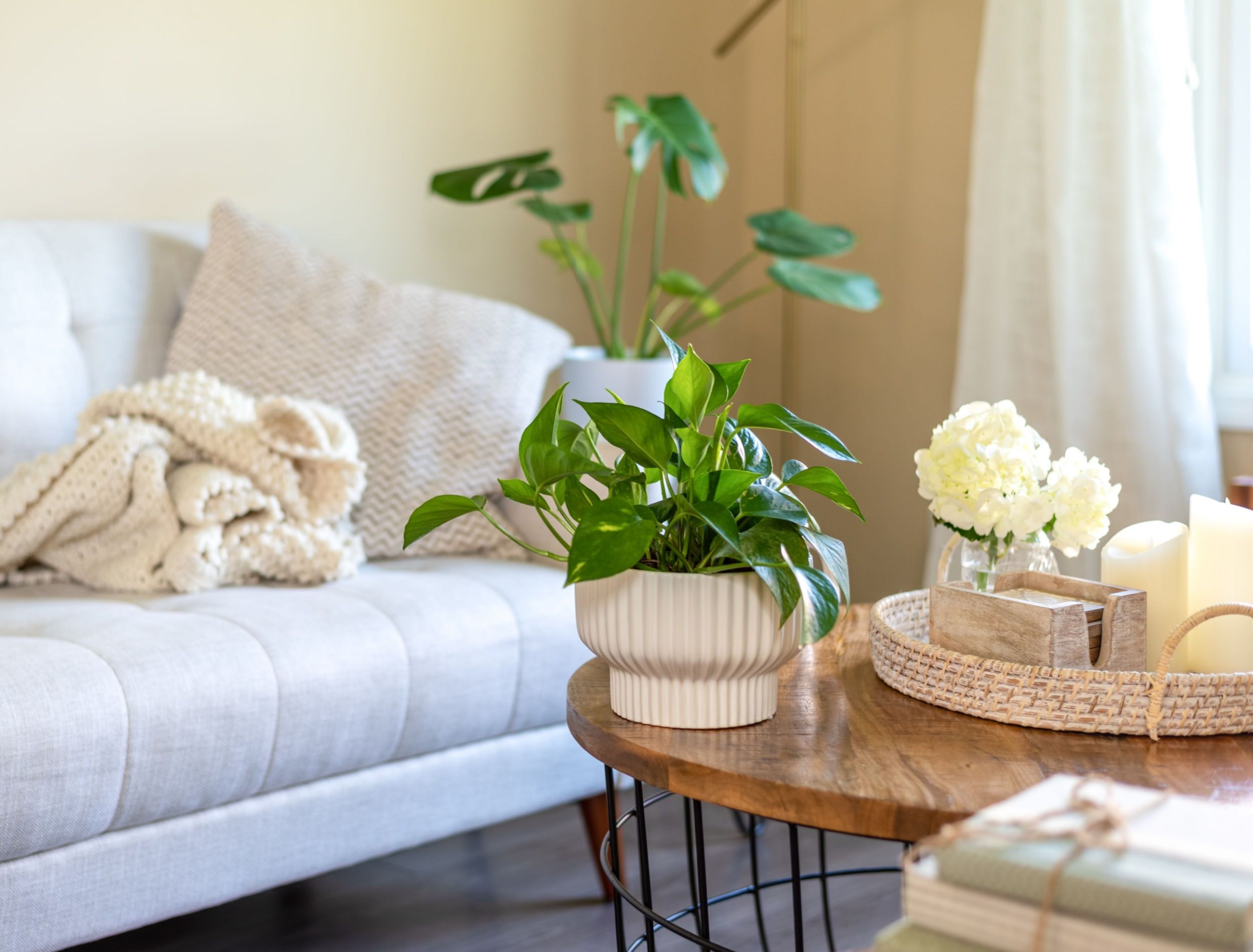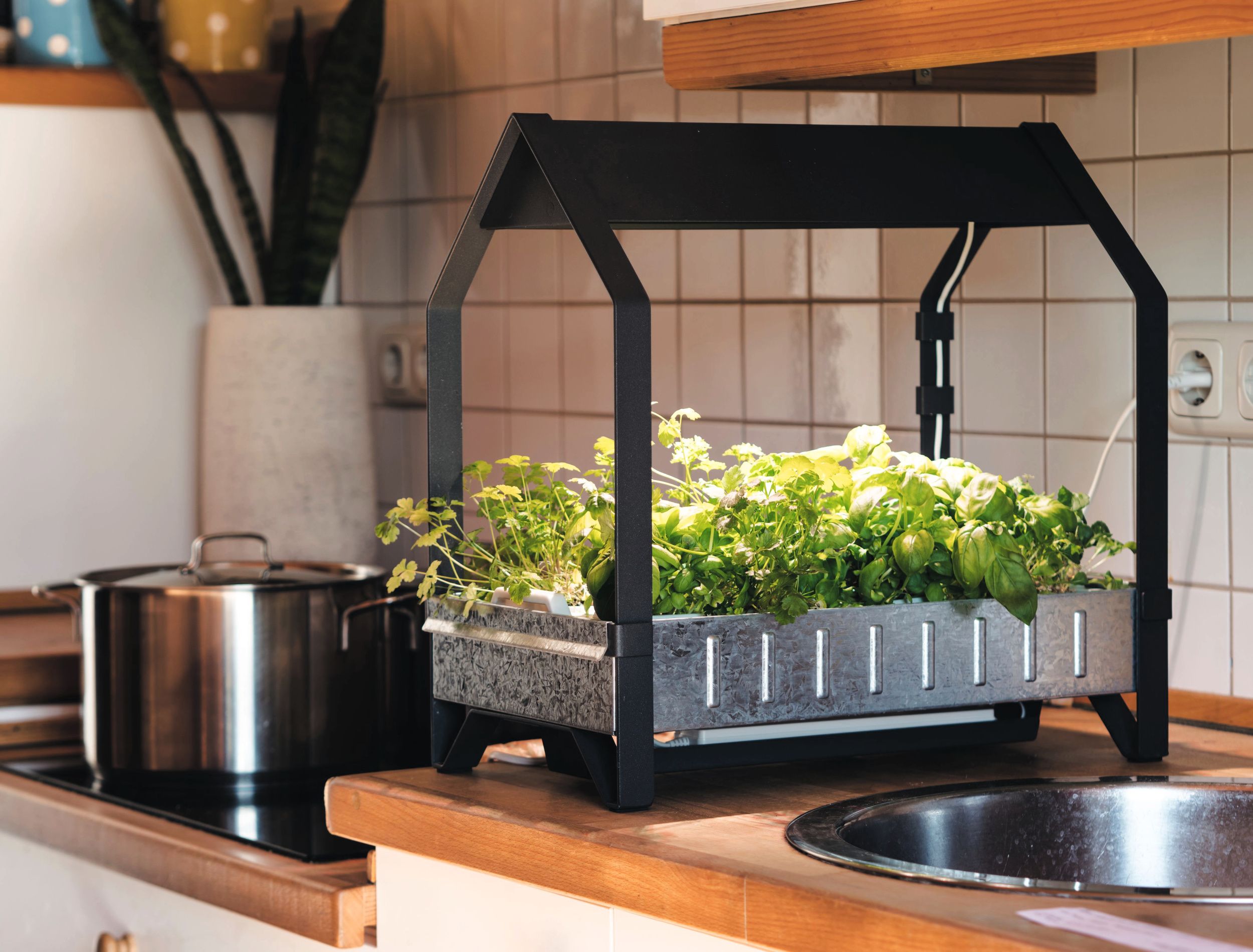Caring for your indoor garden can be a wonderful way to add color and life to your space, while also providing you with beautiful flowers or herbs that are sure to impress. With so many benefits, it’s no wonder so many people choose to garden as their go-to hobby. But one important factor is often overlooked: watering plants!
Now, it's easy to think that ice cubes could be a great way to give your houseplants an extra boost of hydration, and it can definitely be tempting! But should you water your plants with ice cubes? As it turns out, it's not as beneficial as everyone says.
Should You Water Your Plants With Ice Cubes?
Image credits: New Africa via Shutterstock
Ice cubes are not the optimal way to water houseplants because they can cause root shock. This is when the temperature of the soil drops too quickly, damaging the roots of your plant. The sudden change in temperature can cause leaf drop, wilting, discoloration, and even permanent root damage. Additionally, if the ice itself contacts any of the plant tissue, it could lead to tissue death or stunted growth.
The shock of ice-cold water can also cause their growth to slow down dramatically, and sometimes may even induce dormancy. This is particularly true for sensitive plants that are not used to such temperatures.
The normal home temperature is between 65 to 75 degrees Fahrenheit which is a houseplant happy zone. By introducing freezing cold ice into the equation, you’re likely damaging rather than helping them.
Orchids and Ice Cubes
Image credits: Nancy Salmon via Shutterstock
Often when buying an orchid from a grocery store or small shop, there is a note attached saying to use ice cubes. Or, maybe you've had a friend recommend this alternative. The hard truth is, you shouldn't do this!
When it comes to watering your orchids, here are five words of advice: steer clear of ice cubes! Most members of the orchid family -- such as the Phalaenopsis -- are tropical plants. This means they don't take too kindly to cold temperatures, so using ice cubes for hydration is a definite no-no. Instead, pick up some room temperature water for optimal care and keep your lovely blooms in top condition. So remember, when it comes to orchids and ice cubes, just say no!
How to Water Your Houseplants Properly
Watering your houseplants properly is essential to guarantee that they stay healthy and thrive. It can be tricky, however, as too much or too little water can cause problems. Follow these simple tips to ensure you’re giving your plants the hydration they need!
Check the Moisture Levels in Your Plant
Image credits: cottonbro studio via pexels
First, always check the soil of each plant before watering it. If the top inch of soil is dry, it’s time to water. To avoid overwatering, let the soil dry out between waterings. Water at the base and not from above so you don’t soak the leaves and risk mildew or rot.
Use The Right Temperature Water
Image credits: Imani via Unsplash
When you do water your plants, use lukewarm (ambient temperature) or room-temperature water. In hot weather, cooler water may be beneficial for plants in black plastic pots that are exposed to direct sunlight--it can help the roots cool off a bit and protect them from damage.
Additionally, using tap water to make ice cubes may seem convenient, but the truth is that it can be detrimental to your plants. Tap water contains excess mineral salts, fluoride, and chloramine which tend to accumulate over time and can cause damage to your plant's roots. Houseplants like prayer and carnivorous plants should not be watered with tap water. Instead, opt for filtered, distilled, or rainwater when watering these fickle plants.
The Best Time to Water
Image credits: New Africa via Shutterstock
Avoid watering your plants during the hottest part of the day. Early morning or late evening watering is best so plants can soak everything up before the sun dries it out. This will also prevent them from baking in the sun with wet leaves and keep you from getting overheated while tending to your home jungle!
Get Pots With Adequate Drainage
Image credits: Kristen Prahl via Shutterstock
An important step in the watering process is making sure your plants are in a pot or planter that has adequate drainage capabilities. This will help ensure that the roots of your plants don’t become waterlogged and can breathe properly.
Make Your Watering Process Easier
Image credits: FotoHelin via Shutterstock
Consider investing in self-watering bulbs or self watering planters if you’re forgetful about checking soil moisture levels or don’t have time to give your houseplants regular attention. This way, each of your plants will get the exact amount of water it needs with no additional effort on your part!
Hydroponics for the Win!
Image credits: Floki via Shutterstock
If you’re growing vegetables and herbs indoors, a hydroponic system is a perfect way to regulate the water supply, so your plants stay in top shape!
Unlike traditional soil-based gardening, hydroponics allows for complete control over your plants’ water needs and environment. The key is getting your nutrient solution just right and knowing when and how much to water each variety. It’s an accessible way for everyday people to enjoy the benefits of growing their own food right at home!
Not only is it a great way to save money and have access to fresh produce year-round, but there are also environmental benefits associated with hydroponic gardening. Hydroponic systems use significantly less water than traditional soil gardening, reducing water waste and helping preserve valuable resources.
Additionally, because you can contain hydroponic systems indoors or in greenhouses, they’re not subject to the same pests, weeds, and other garden hazards as outdoor gardens.
No Ice For You!
Although it might be tempting to try giving your houseplants an occasional icy drink, it turns out that ice cubes just aren’t a good option for hydration. It’s always best to follow proper watering techniques for optimal health and plenty of lush foliage.
With a little love and attention, you can keep your houseplants happy and healthy for years to come! Do you have any tips or tricks for watering your houseplants? Leave a comment below! And don’t forget to share this article with your family and friends!

